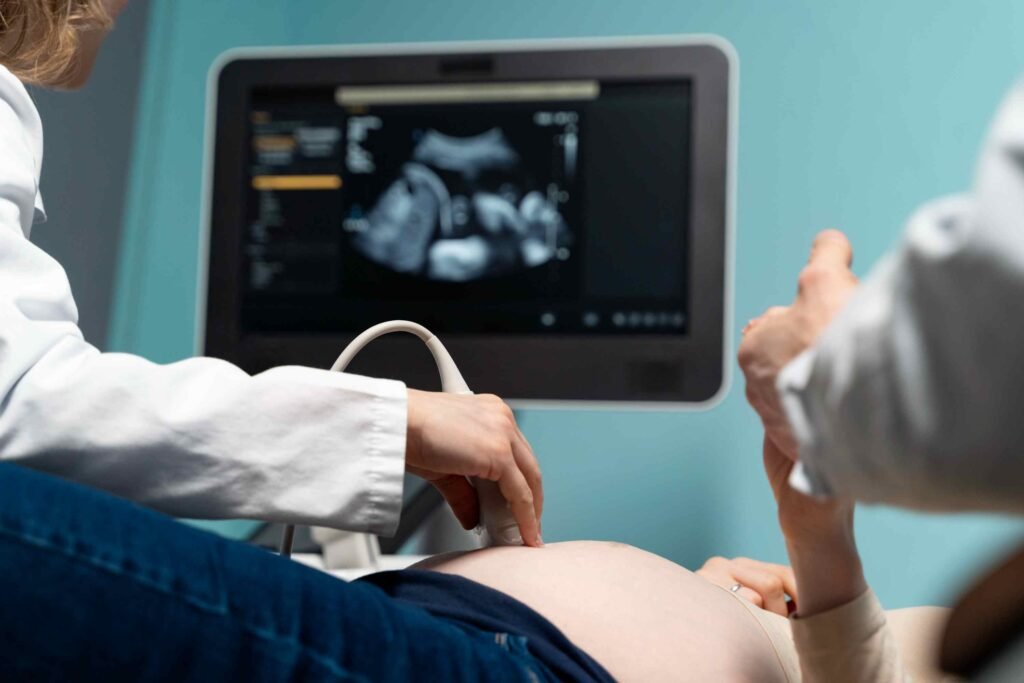Importance of Ultrasound Scans in Pregnancy
Pregnancy is a journey filled with anticipation and preparation. Among the many tools used to monitor the health of both mother and baby, the ultrasound scans in pregnancy stands out as a critical component of prenatal care. This non-invasive technique not only allows parents to get a glimpse of their developing baby but also provides essential information about the baby’s health, growth, and development.
What are Ultrasound Scans in Pregnancy?
An ultrasound scan, also known as sonography, uses high-frequency sound waves to create images of the inside of the body. In the context of pregnancy, it helps in visualizing the developing baby, the uterus, and other important aspects of the maternal pelvic area. The process involves a device called a transducer that emits sound waves. These waves bounce off the tissues, bones, and fluids inside the body, and the echoes are converted into digital images.

The Role of Ultrasound in Pregnancy
Early Pregnancy
In early pregnancy, that is the first trimester of pregnancy, ultrasounds are used to:
- Confirm the presence of an embryo.
- Determine the age of the pregnancy.
- Assess the number of embryos.
- Check for major physical abnormalities.
- Evaluate the condition of the uterus and ovaries.
Mid-Pregnancy
During the second trimester, often between 18 to 22 weeks, the detailed anatomy scan is performed. This ultrasound is crucial as it:
- Checks the fetal anatomy for abnormalities.
- Measures the growth of the fetus.
- Assesses fetal movements.
- Determines the position of the placenta.
- Evaluates amniotic fluid levels.
Late Pregnancy
In the later stages of pregnancy, ultrasounds may be used to:
- Monitor the growth and health of the fetus.
- Determine fetal position and assess the likelihood of a normal delivery.
- Estimate the weight of the baby.
- Check the placenta for any issues that could affect delivery.

Benefits of Ultrasound Scans
Ultrasound scans offer numerous benefits during pregnancy:
- Safety: Unlike X-rays, ultrasounds do not use ionizing radiation and are considered safe for both mother and fetus.
- Early Detection: They can help in the early detection of potential health issues that could affect the mother or the baby, allowing for timely medical intervention.
- Emotional Bonding: They provide a visual connection between parents and their unborn child, which can be an important aspect of emotional bonding.
- Planning and Preparation: Knowing the position of the baby and the status of the placenta helps in planning the type of delivery.
Note : If you have achieved pregnancy through a treatment from the best IVF centre in Bangalore, then you benefit from timely and precise ultrasound scans, which are essential for a smooth and healthy pregnancy journey.
Limitations and Considerations
While ultrasounds are invaluable tools, they do have limitations. The clarity of the images depends on various factors such as the position of the baby, maternal body type, and the quality of the equipment. It’s also important to understand that ultrasounds are not 100% accurate in diagnosing all types of conditions. Sometimes, further tests may be needed.
Ultrasound Technology Advancements
Advancements in ultrasound technology have significantly enhanced its utility in prenatal care. Three-dimensional (3D) ultrasounds can provide detailed images of the fetus, while four-dimensional (4D) scans show real-time movement, allowing parents and health professionals to observe facial expressions and movements of the baby before birth.
Conclusion
Ultrasounds play a pivotal role in modern prenatal care. They not only provide key health insights and aid in medical planning but also enhance the emotional and psychological preparation of parents for their new arrival. With ongoing advancements in ultrasound technology, the scope of these scans is ever-expanding, promising even greater contributions to maternal and fetal health in the future. Selecting the best IVF centre in Bangalore is crucial, not just for fertility treatments but also for ensuring access to advanced ultrasound scans that monitor pregnancy progress.




